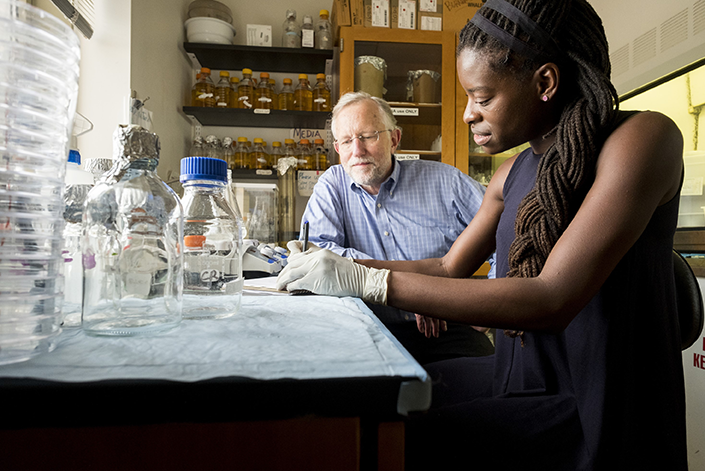Institute for Global Infectious Disease Research
 Well before the current COVID-19 pandemic, Rockefeller University’s new strategic plan called for the creation of a Institute for Global Infectious Disease Research. With the pandemic now causing untold human suffering and loss in lives, this is the University’s highest priority.
Well before the current COVID-19 pandemic, Rockefeller University’s new strategic plan called for the creation of a Institute for Global Infectious Disease Research. With the pandemic now causing untold human suffering and loss in lives, this is the University’s highest priority.
The COVID-19 pandemic effectively jump-started the creation of the new Center. More than 20 of Rockefeller’s 75 labs have been working around the clock since March 2020 to find new treatments and a cure for this disease. Their major emphasis is on developing therapies with broad-spectrum efficacy that can also be used in future coronavirus outbreaks. The risk is imminent: there have been three coronavirus outbreaks in the last 17 years—SARS-CoV-1, MERS, and now SARS-CoV-2, the first to cause a global pandemic.
Why is a new Center needed?
Infectious diseases are a rising threat in today’s world. As people travel internationally by jet, viruses travel with them. As people settle near wild habitats, novel viruses are more likely to jump from animals to humans. Warming climates are extending the ranges of mosquitos and other disease-carrying insects. Antibiotic-resistant bacterial infections are increasingly difficult to control. Large and densely populated urban centers are becoming tinderboxes for contagion. Fueled by these intersecting trends, new infections will emerge more frequently and will spread with alarming efficiency.
Rockefeller has shown that interdisciplinary research centers in cancer biology, neuroscience, inflammation and the microbiome, and other fields can accelerate research and spark new collaborations. COVID-19, with its diverse and perplexing array of symptoms, requires such an interdisciplinary strategy. In addition to flu-like illness and pneumonia, COVID-19 may cause a loss the sense of smell and taste, severe skin rashes, digestive symptoms, brain inflammation, and major blood clots leading to heart failure and stroke. And that is only what we know so far. Understanding and treating this complex illness calls for collaboration among the University’s distinguished experts in virology, immunology, and genetics, as well as brain science, metabolism, and cardiovascular disease.
Rockefeller, with no departments, can move nimbly and is renowned as an environment where cross-disciplinary collaborations can thrive. However, research centers amplify these strengths. Centers provide a non-bureaucratic structure and resources that support "out of the box” ideas. A center can seed and sustain projects that would never receive support from conventional funding sources. The new Center will benefit from the University’s world class basic science and a robust translational research ecosystem—including a research hospital—that can take discoveries from bench to bedside.
Centers also organize and sponsor meetings, workshops, and seminars with scientists from across the globe. Rockefeller University’s convening power is unique in the world and can quickly bring the leading infectious disease experts on the planet together to meet current and future challenges.
The University is seeking visionary philanthropists to join in launching the new Institute for Global Infectious Disease Research. Please help us to defeat this pandemic and be fully prepared for the next.
If you would like to learn more about the University’s plans for this new center, please write to Ms. Marnie Imhoff, Senior Vice President for Development at imhoff@rockefeller.edu.